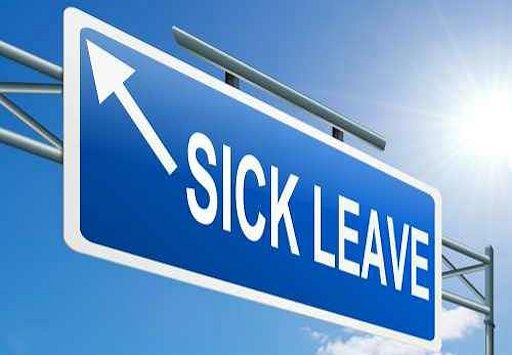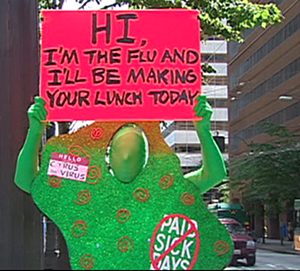The co-owner of a go-kart racing business in Jersey City, N.J., doesn't want to have to pay her 31 hourly employees when they call in sick to nurse a cold or other illness.
"The standard in the work environment for a part-time role is that you're paid only for the hours you work," says Karen Davis-Farage, also president of two other Pole Position Raceway franchises, with more than $6 million in total revenue last year. The cost of paying absent workers, plus their replacements to greet customers and organize races, could hurt the bottom line of her three-year-old Jersey City franchise company, she says.
Tom McDonald, president of NSI Inc, an information-technology services firm in Naugatuck, Conn., comes down on the other side of the debate. "It's just good business," he says. "Why wouldn't you want to do what's right for your employees?"
Many cities and states across the country have been adopting strict new mandates outlining paid sick days. In recent years, New York City, San Francisco, Jersey City, Portland, Ore. and Washington, D.C., have enacted measures. The laws generally require businesses with at least five employees to provide a number of paid sick days, based on the total hours worked, up to a specified maximum, typically five to seven days a year.
Proponents of such laws say low-wage workers are the least able to afford an unpaid day off, and sick workers can infect others. Critics say the laws unnecessarily raise costs for small employers and blunt job growth.
[...]
About 86% of U.S. companies of all sizes last year provided some form of paid sick leave, through stand-alone or broader paid-time off plans, according to the Society for Human Resource Management. But roughly 40 million U.S. workers, or about 38% of the labor force, currently don't have paid sick leave, according to the left-leaning think tank Center for American Progress. It estimates that sick workers—whether staying at home or working at less than full throttle—cost employers more than $160 billion a year in lost productivity.
Some states, including Wisconsin and Florida, have banned cities from adopting sick-pay legislation, citing a negative impact on the local economy. Federal labor laws don't require paid sick leave, though the Family and Medical Leave Act provides up to 12 weeks of unpaid leave without risking loss of the job. To date, Connecticut is the only state that requires private-sector employers to provide sick pay, under a law that went into effect in January 2012.Read the full story HERE.
If you like what you see, please "Like" us on Facebook either here or here. Please follow us on Twitter here.





No comments:
Post a Comment